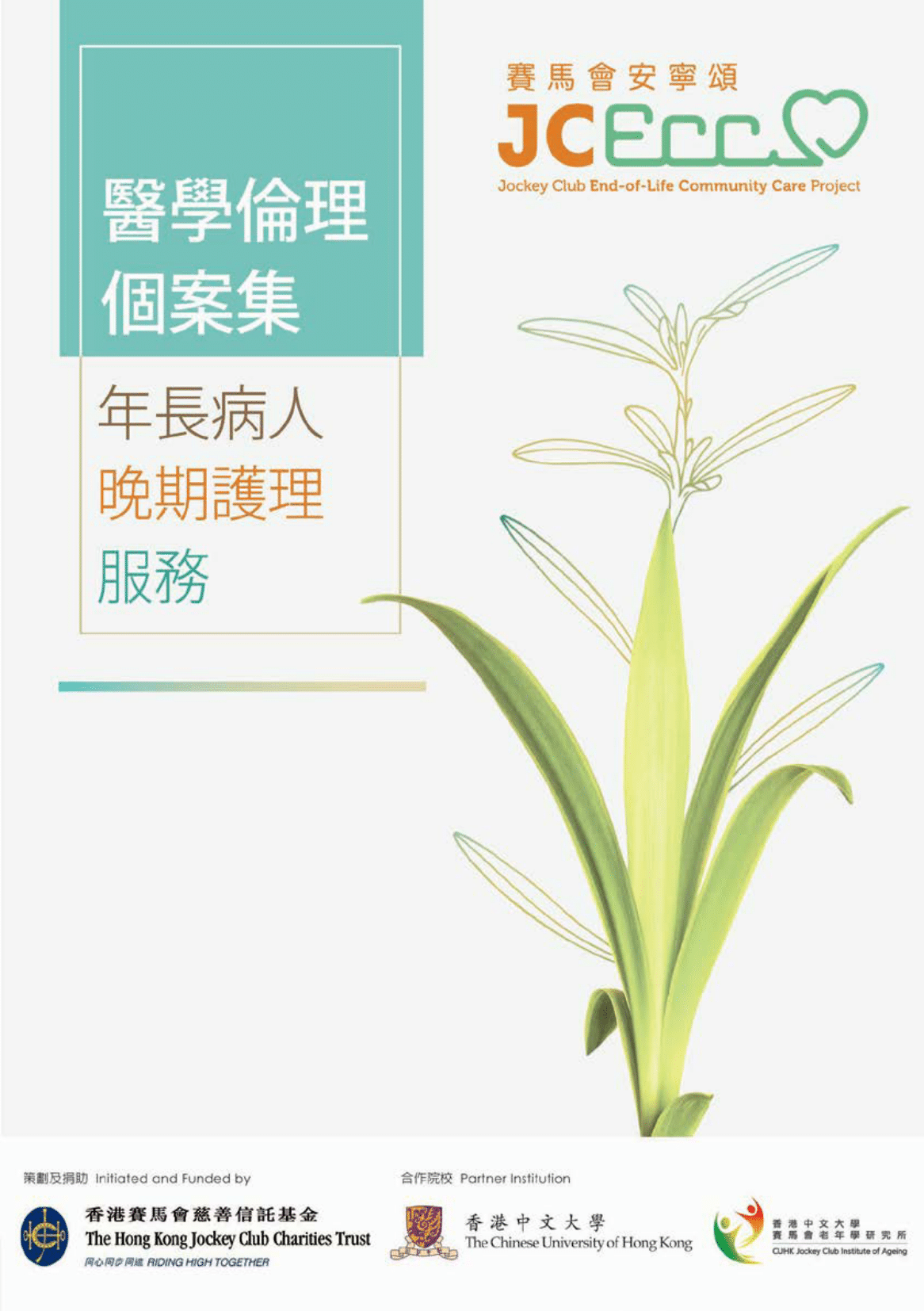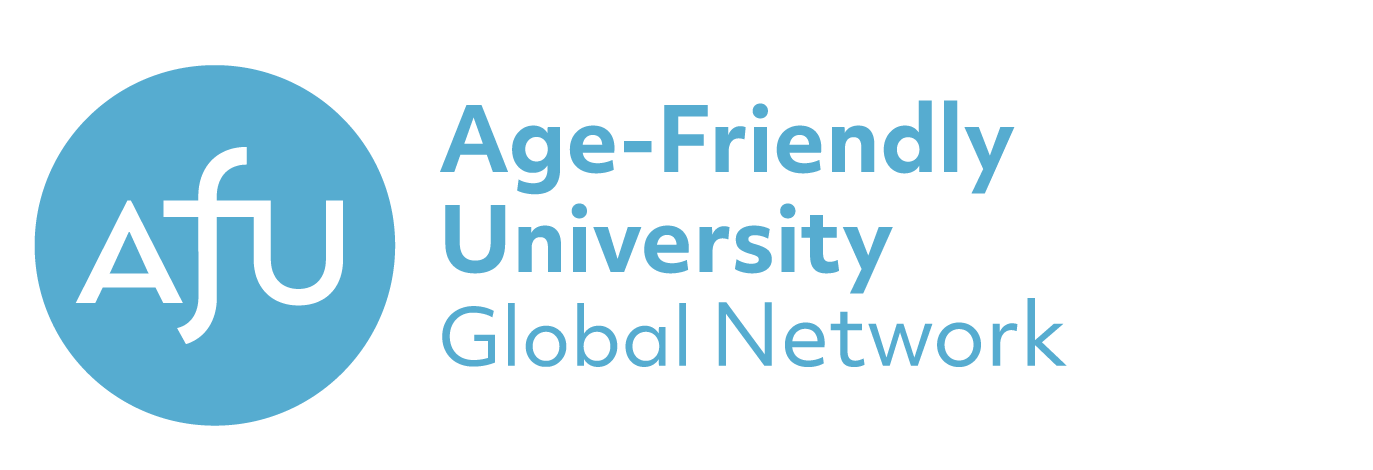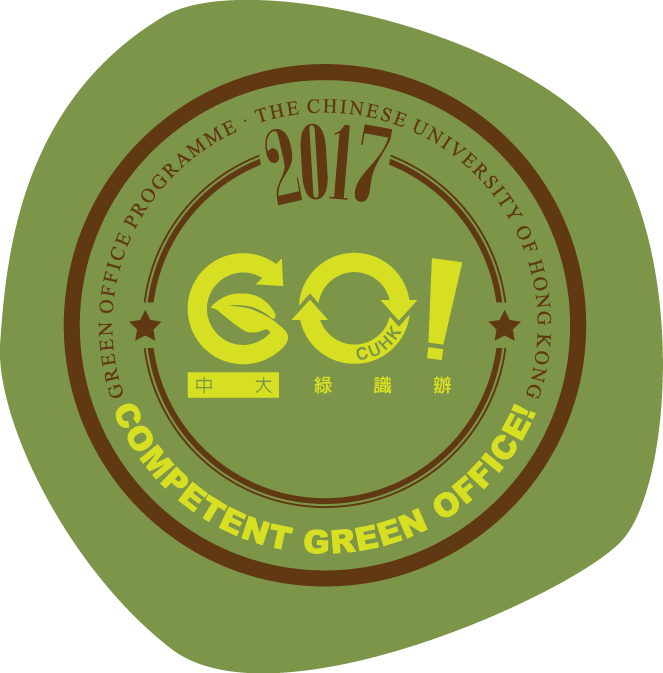HOME
Case: Mr Chan
Feeding tube decision in a dying demented patient
Topic: Feeding tube decision in a dying demented patient
Case commentary by: Dr. Tse Chun Yan
Introduction: This video aims to discuss about the important factors that should be considered in analyzing the clinical ethics case - feeding tube decision in a dying demented patient.
00:12 Case description
08:47 Case commentary
08:53 Cultural factors should be considered and respected in clinical ethics case analysis.
09:35 Was tube feeding going to prolong the patient's life at this stage?
10:00 Was it the patient’s wish to die with a full stomach?
10:26 Was the treatment in the patient's best interests?
10:54 Case commentary wrap up
Mr. Chan was an 84-year-old male, with a history of hypertension, diabetes and recurrent ischaemic stroke. His wife died a few years ago. He had two sons and one daughter living in Hong Kong. He was diagnosed to have vascular dementia five years ago and became chair-bound. For two years, he lived with his second son's family, cared for primarily by his daughter-in-law Mary. However, Mr. Chan had gotten progressively weaker in the last few months and Mary no longer could transfer him out of bed alone. Mr. Chan was then brought to live at a private old aged home.
In the last year, he became bed bound and double incontinent and required assisted feeding. He also had recurrent hospital admissions due to chest infections and the speech therapist recommended puree diet and thickener in fluid. After an episode of aspiration pneumonia, the speech therapist suggested non-oral feeding due severe oropharyngeal dysphagia.
The doctor asked to meet with the family and the second son and the daughter came. His son said, "Father would not want to have a feeding tube placed. He had seen many tube-fed elderly people at the old age home. They just lied in bed all day and it was not a life that he wanted. He told us that he would rather die than have one put into him."
The daughter had also heard her father express that and they both made the decision for careful hand feeding rather than tube feeding. They understood the risk of aspiration, pneumonia and death.
The patient tolerated careful hand feeding for several months. However, he then developed fever and became unarousable. He was transferred to the hospital and was found to have a severe pneumonia. He was kept nil by mouth and given parenteral antibiotics. His second son and daughter were informed of deteriorating clinical condition and imminent death. They understood and agreed to continue conservative management.
The next day, however, the oldest son turned up and insisted on starting tube feeding. He accepted that his father was dying and agreed to continue comfort care and continue DNACPR order. However, he said "It's important that my father would die with a full stomach. I do not want him to become a hungry ghost.” The clinician was not sure whether he should simply reject the son's request or not.
---------------------------------------------------------------------------------------------------------------
Themes: Nutrition and hydration, cultural beliefs, family conflict, dementia, life-sustaining treatment
- Dr. Tse Chun Yan, Chairman, HA Clinical Ethics Committee (2005 to 2017)i
Cultural factors are among various important contextual features that should be considered in clinical ethics case analysis. The Chinese may have some deep-rooted views about death and dying that the patient may value. Such views may have to be respected in suitable situations. However, this does not mean that traditional cultural views should be accepted without question. Cultural considerations have to be individualized and carefully weighed against other important considerations.
We can approach the problem step by step:
|
After reaching the conclusion that tube feeding should not be provided, the doctor had to handle the son's request in an appropriate manner. Rather than just telling the patient's son that he had no right to request the treatment, it would be better for the patient's son to understand the rationale of the final decision. This would help to reduce conflicts and reduce guilt feelings in the son after the patient's death. The doctor should explain to the son that treatment given had to be in the patient's best interests, and that tube feeding would do more harm than good to the patient and was not in line with the wish of the patient. It would be useful to involve the other family members in the discussion, who might understand better the view of the healthcare team. If differences in opinion persisted despite thorough communication, the healthcare team was not obliged to provide clearly futile treatment not in the best interests of the patient. Adequate documentation of the rationale for the final decision should be made in the medical notes.
i The case and commentary was adapted from an article by Dr. Tse Chun Yan, "Practical Approach to Clinical Ethics at the Bedside for General Physicians", published in Synapse, Newsletter of the Hong Kong College of Physicians, in August 2016. The case was originally presented by Dr. Wong Che Keung of Ruttonjee and Tang Shiu Kin Hospital on 23 April 2016 in the Clinical Ethics Day held in HA Head Office Lecture Theatre.
個案:陳先生
為認知障礙症患者提供餵飼管的抉擇
題目:為認知障礙症患者提供餵飼管的抉擇
個案評論撰寫:謝俊仁醫生
簡介:本片旨在通過臨床倫理案例的分享,探討如何分析和處理是否應該為認知障礙症患者提供餵飼管的抉擇。
00:12 臨床倫理案例分享
08:47 個案評論分析
08:53 考慮並尊重文化因素
09:35 在這個階段管飼是否會延長病人生命?
10:00 「希望死去時要吃飽」是否符合病人自己的意願?
10:26 管飼是否符合病人最佳利益?
10:54 個案評論演繹
陳先生84歲,男性,有高血壓,糖尿病和復發性缺血性中風病歷。他的妻子數年前去世。他有兩個兒子和一個女兒,兒女都住在香港。陳先生5年前確診患有血管性認知障礙症,需要坐輪椅。兩年來,他和次子一家同住,主要由媳婦瑪莉照顧。但是,陳先生在過去幾個月變得愈來愈虛弱,瑪莉不能再單獨扶他下床了。其後,陳先生被送到私營安老院居住。
去年,陳先生變得需要臥床,大小便失禁,要依靠他人餵食。他亦因肺炎多次入院,言語治療師建議他進食糊餐,並把飲料增稠。在患上吸入性肺炎後,陳先生有嚴重的口腔吞嚥困難,言語治療師因而建議非口腔進食。
醫生要求與陳先生的家人見面,陳先生的次子和女兒來了。次子說:「爸爸不會想插入餵食管的,他在安老院看過很多以餵食管餵食的老人,他們只能整天躺在床上,這不是他想要的生活。他曾告訴我們,他寧願死,也不要被插入餵食管。」
陳先生的女兒也曾聽過父親說同樣的話,她和次子都決定選擇用人手小心餵食,而不使用管飼。他們都明白當中會有誤吸、肺炎和死亡的風險。
病人接受了人手小心餵食數個月。但是,他接著開始發燒,甚至變得昏迷。他被轉送到醫院,並發現患有嚴重的肺炎。他一直沒有再以口腔飲食,並獲處方靜脈注射抗生素。陳先生的次子和女兒得知父親的病情惡化,並會很快過身。他們理解情況,並同意繼續保守治療。
但是,陳先生的長子在第二天出現,並堅持要開始管飼。他接受父親即將死去,亦同意繼續紓緩治療和維持不作心肺復甦術的指示。不過,他說:「我爸爸死去時要吃飽,這很重要。我不想他變成餓鬼。」臨床醫生不肯定他是否應該拒絕長子的要求。
---------------------------------------------------------------------------------------------------------------
主題: 提供營養與水分、文化習俗、家屬糾紛、認知障礙症、維持生命治療
醫院管理局臨床倫理委員會主席(2005至2017年)謝俊仁醫生撰寫
分析臨床倫理案例時,應考慮各種重要背景因素,文化因素正是其中之一。中國人對於死亡和面對死亡有一些根深蒂固的看法,病人可能很重視這些看法。 在適當的情況下,我們或須尊重這些觀點。但這並不表示我們應該毫無疑問地接受傳統文化觀點。 考慮文化因素時,我們應就每宗個案的情況,仔細和其他重要考慮因素相權衡。
我們可以逐步處理這問題:
|
在得出不應提供管飼的結論後,醫生須以適當的方式處理病人兒子的要求。醫生應向病人兒子解釋,令他明白醫生作出此最終決定的理由,而不應單單告知他無權要求管飼。這會有助避免衝突,並減低病人死亡後其兒子的內疚感。醫生應向病人兒子解釋,其給予病人的治療須符合其最大利益,而管飼對病人弊多於利,亦不符合病人的意願。此外,醫生可讓其他家庭成員參與討論,他們或能更理解醫療團隊的觀點。如果深入溝通後意見仍然分歧,醫療團隊並沒有義務提供明顯不符合病人最佳利益的無效治療。在醫療紀錄中應詳列作出此最終決定的理由。
i 此個案和評論改編自香港內科醫學院在2016年8月出版的通訊Synapse中,謝俊仁醫生所寫的〈給醫生的臨床倫理實用建議〉一文。起初,此案例由律敦治及鄧肇堅醫院的王自強醫生,於2016年4月23日假醫院管理局總辦事處演講廳舉行的臨床倫理日首先提出。
安寧服務培訓及教育計劃
年長病人晚期護理服務醫學倫理個案集
簡介
個案集為照顧年長晚期病人遇到醫學倫理問題的醫生、護士、社會工作者和專職醫療人員提供開放式網上資源。選取的個案均已諮詢於醫院、診所和社區照顧年長病人的醫護與社會關懷專業從業員,個案中的情況於香港均普遍而具挑戰性。每宗個案都有專家評論,分析倫理難題,並提出實用的臨床處理方法。個案集同時就年長病人晚期護理的重要議題提供背景和額外資源。未來亦會繼續更新,適時加入新的個案和背景資料。
個案集獲「賽馬會安寧頌」計劃(JCECC)的支持,並與香港中文大學生命倫理學中心合作推行。項目意念源自新加坡國立大學楊潞齡醫學院的新加坡生命倫理個案集計劃,該計劃為醫護專業人士提供網上資源,應對當地常見的倫理問題。香港中文大學賽馬會老年學研究所抱著同樣信念設計個案集,因應本地情況為香港的醫護從業員提供支援。
個案集的個案均根據真實內容改編,當中的人物名稱與詳情經修改後,不會透露任何個人資料。
|
籌劃及製作  合作夥伴  如有查詢,請電郵至Email住址會使用灌水程式保護機制。你需要啟動Javascript才能觀看它 |
||
醫學倫理個案集 (2019年2月出版)  按此下載 |
Case: Mr Lau
Conflict between team members
Mr. Lau is an 89-year-old long-term resident at a home for the aged. He started living at the home about 8 years ago after he was hospitalized for a stroke resulting in right-sided weakness and became wheelchair bound. He was never married and has two sisters who visit him every now and then.
Two weeks ago, Mr. Lau was admitted to the hospital after falling from his wheelchair and broke his hip. He was admitted to the orthopaedics ward. Dr. Shan, the orthopaedic consultant felt he was not a surgical candidate for hip replacement due to his poor underlying health status and he was already wheelchair-bound. Over the next few days, Mr. Lau developed a fever and cough, and was diagnosed with pneumonia. Despite being treated with antibiotics, his respiratory status worsened. He struggled to maintain oxygenation despite being on the maximum amount of oxygen that can be delivered to his face mask.
Given his deteriorating condition, the orthopaedics medical officer, Dr. Lo, phoned Mr. Lau’s sisters and explained: “Your brother has a serious pneumonia. If we don't connect him to a breathing machine soon, he will soon die.” His sisters agreed with inserting a breathing tube, and Mr. Lau was connected to a ventilator. A feeding tube was inserted and tube feeds were initiated.
Dr. Hong is the intern who has been caring for Mr. Lau over these past few weeks in the hospital. Now that Mr. Lau is on the breathing machine, Dr. Hong was distressed at doing repeated arterial blood draws on the patient to monitor Mr. Lau's blood gases because of the pain the procedure caused. Both his arms were badly bruised from the frequent blood draws. He felt that keeping Mr. Lau alive on the ventilator was torturing the patient. He did not think that his senior Dr. Lo had a proper informed discussion about the risks and benefits of the treatments with his family.
Fortunately, after a week on the ventilator, Mr. Lau’s respiratory status improved, and he was successfully extubated.
A day later, however, Mr. Lau was having more difficulty breathing again. Dr. Lo spoke with the consultant Dr. Shan who agreed with re-intubating the patient. He then told Dr. Hong to call the anesthesiologist to come to perform the intubation. Dr. Hong became concerned that putting Mr. Lau back on the ventilator would be futile treatment since he is unlikely to leave the hospital alive and it would only serve to prolong his dying and increase his suffering. He is uncertain whether or not to follow his senior’s orders to call the anesthesiologist.
---------------------------------------------------------------------------------------------------------------
Themes: Moral distress, futility, conflict between team members, informed consent, life-sustaining treatment
- Dr. Tse Chun Yan, Chairman, HA Clinical Ethics Committee (2005 to 2017)
Dr. Hong was concerned that further intubation and mechanical ventilation would be futile and not in the best interests of the patient. Whether this view is appropriate would depend on the following factors:
|
If, after considering the above factors, Dr. Hong considers that re-intubation would be futile and not in the best interests of the patient, it would be proper that he does not simply follow the instruction of his senior without question. Dr. Hong has an ethical duty to exercise his own independent professional judgment and to act in the patient's best interests.
It would be appropriate to discuss further with his seniors, to raise his views and to suggest seeking a second opinion from a relevant specialist. Because what is in a patient's best interests is often a value-laden decision, in making the decision, it is useful to build consensus with the patient and his family members and among members of healthcare team, taking into account views from different perspectives.
If consensus cannot be reached within the healthcare team, if time allows, the clinical ethics committee of the hospital can be consulted. Another alternative is to consider a time-limited trial of treatment. The healthcare team should work out with the patient and family a well-defined set of therapeutic goals and end points and a well-defined period of trial time. If no progress is made towards the agreed therapeutic goals at the end of the trial period, decision can be jointly made to withdraw the life sustaining treatment.






